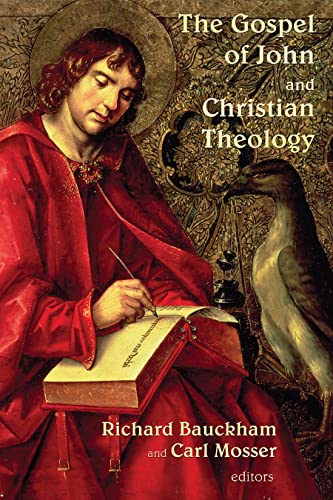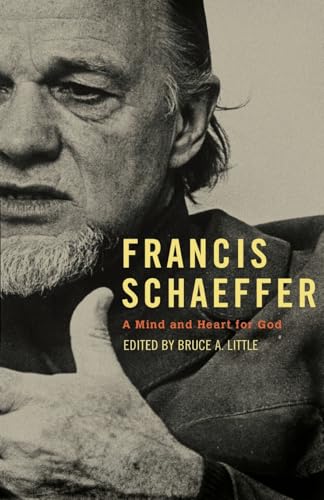The Gospel of John and Christian Theology
Written by Richard Bauckham and Carl Mosser, eds. Reviewed By Celucien L. JosephThe Gospel of John and Christian Theology is a collection of essays initially given at a conference at the University of St. Andrews, Scotland. Richard Bauckham, who hosted the conference and writes the introduction to the volume, states that “the aim was to bring biblical scholars and systematic theologians together in conversation about a biblical text that has played a formative role in Christian Theology through the centuries” (p. x). In this effort, Bauckham and the other contributors collaboratively pursued this overdue conversation and thus endeavored to bridge the great divide between the disciplines of biblical studies and theology. It is in this framework, that biblical scholars and systematic theologians equally employed their theological skills to engage in a variety of topics, including the Gospel of John and our pluralist context, Johannine Christology, recent scholarship on Johannine studies, the contentious phrase “the Jews” in John, the relationship between John and history, issues pertaining to the historical reliability of the Lazarus narrative, and the relevance of the Fourth Gospel to contemporary theological discourse.
These fine essays emphasize the theological, philosophical, and practical implications of the Fourth Gospel. Both Stephen C. Barton and Miroslav Volf contribute essays on the interplay of Johannine dualism and contemporary pluralism. With theological and exegetical sensibility and rigor, Barton and Volf insist that the dualities of John must be analyzed contextually in their historical milieu. They reject the traditional approach that generalizes Johannine conceptual dualities. D. Jeffrey Bingham demonstrates how the Gospel’s own testimony on the motif of the divine aseity provided for Irenaeus both the theological and doctrinal resources to refute Gnosticism. Rowan Williams succinctly surveys the Anglican approaches to the Gospel by examining the work of four scholars: B. F. Westcott, John A. T. Robinson, E. C. Hoskyns, and William Temple. Williams concludes, “historical mediation is essential to a distinctively Christian account of the knowledge of God” (p. 80), which was made possible exclusively through the agency of Jesus. C. Stephen Evans and Richard Bauckham assess the historical reliability of John in light of the involved participants in the narrative. Evans argues that the Gospel of John presents itself as a living testimony, the testimony of the Beloved Disciple, whereas, Bauckham contends that the category of testimony presented in the Gospel of John is “the key to the way in which history and theology relate and cohere in the narrative of this Gospel, and to the way in which historical belief and confessional faith should relate and cohere in Christian reading of this Gospel” (p. 120).
Stephen Motyer, Judith Lieu, Terry Griffith, and Sigve K. Tonstad examine “the Jews,” perhaps the most debatable phrase in the Gospel. Motyer, who has already penned a penetrating monograph on the topic (Your Father the Devil: A New Approach to John and “The Jews,” 1997), forcefully contends that “the Jews” refers predominantly to Jews who were the most strict adherents of the Torah. Lieu, however, disagrees with Motyer’s thesis by suggesting different strategic readings of the phrase and its functionality in the Gospel’s narrative. This is followed by a discussion of another controversial topic in the Gospel: the raising of Lazarus. Andrew Lincoln demonstrates the centrality of the Lazarus story to the literary and theological depth of the Gospel. Marianne Meye Thompson analyzes the Lazarus narrative to show what a “theological interpretation” might entail in contrast to a purely “historical reading.”
Johannine Christology is the focus of attention in the next section. Martin Hengel engages with the Prologue of John’s Gospel and argues that it is a highly poetic and theological discourse that articulates God’s revelation through the Incarnate Word as Jesus Christ. He maintains that the Prologue is an original component of the Gospel and the main source material of the early church’s creedal confessions of Jesus as God and Lord. Paul N. Anderson pursues a similar methodology of diachronic and synchronic integration in reading Prologue as in his former work (The Christology of the Fourth Gospel: Its Unity and Disunity in the Light of John 6, 1996). He carefully shows the Christological and theological tensions in the Gospel and identifies the dialectics of divine and human aspects of the historical Jesus in relation to his role and function, Johannine particularity and universality, as well as present and future eschatology.
The last division of the book, “Using John in the Theological Task Today,” is an attempt to appropriate the Gospel to theological meaning and implications for constructive Christian theology and Christian living. In a careful analysis, Anastasia Scrutton proposes that the Gospel of John articulates revelation as the means of salvation and communion with God. Jürgen Moltmann employs the notions of space and indwelling to express the dynamic exchange between the Triune God and his creation, particularly of God’s dwelling among his people in ancient Israel that is extended in the Gospel of John. This Johannine perichoresis, Moltmann posits, is “mutual indwelling” (“abide in me, I in you”), “the mutual penetration of two heterogenous natures, the divine and the human, in Christ the God-human being” (p. 373).
The book is not without controversy. Of particular attention is the different ways writers address Christology and “the Jews.” However, this collection of essays celebrates and witnesses the present state and future potential of biblical studies and Christian theology. The Gospel of John and Christian Theology demonstrates the benefit of interdisciplinary study and helps to bridge the gap between Christian theology and biblical studies. We can only hope such dialogue will continue.
Celucien L. Joseph
Tarrant County College
Arlington, Texas, USA
Other Articles in this Issue
I didn’t come from an Evangelical home, and though he never told me outright, I’m sure my father never wanted me to become a pastor...
Does Baptism Replace Circumcision? An Examination of the Relationship between Circumcision and Baptism in Colossians 2:11–12
by Martin SalterReformed paedobaptists frequently cite Col 2:11–12 as evidence that baptism replaces circumcision as the covenant sign signifying the same realities...
New Commentaries on Colossians: Survey of Approaches, Analysis of Trends, and the State of Research
by Nijay GuptaNew Testament scholarship in its present state is experiencing a time of abundance, especially with respect to biblical commentaries of every shape, length, level of depth, theological persuasion, intended audience, and hermeneutical angle...
It might seem odd to write an editorial for a theological journal on the topic of not doing theology and how important that can be; and, indeed, perhaps it is contrarian even by my own exacting standards...
Most readers of Themelios will be aware that the word “perfectionism” is commonly attached in theological circles to one subset of the Wesleyan tradition...







